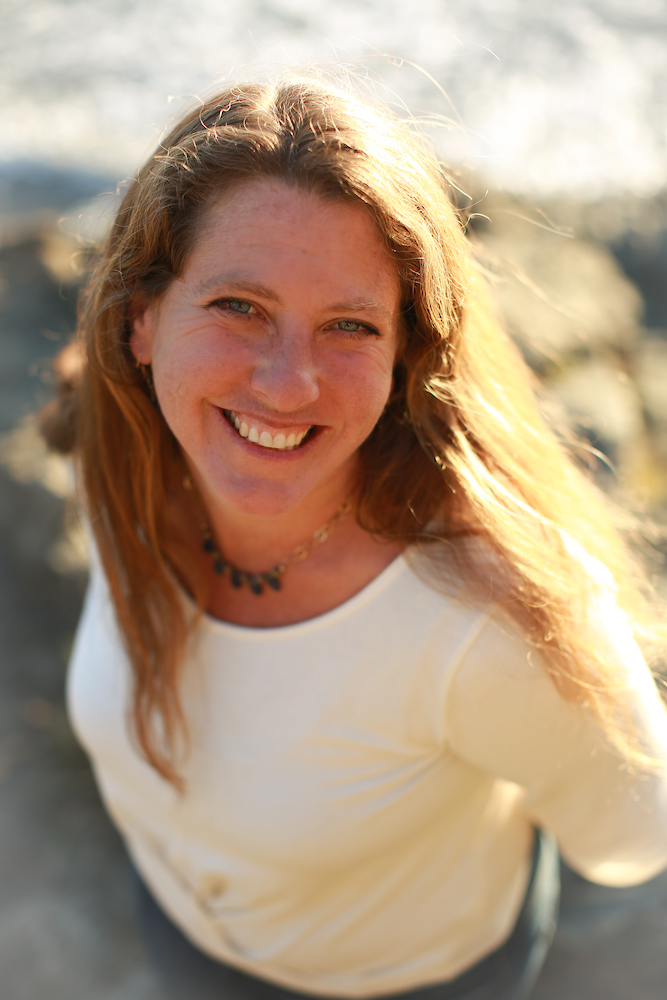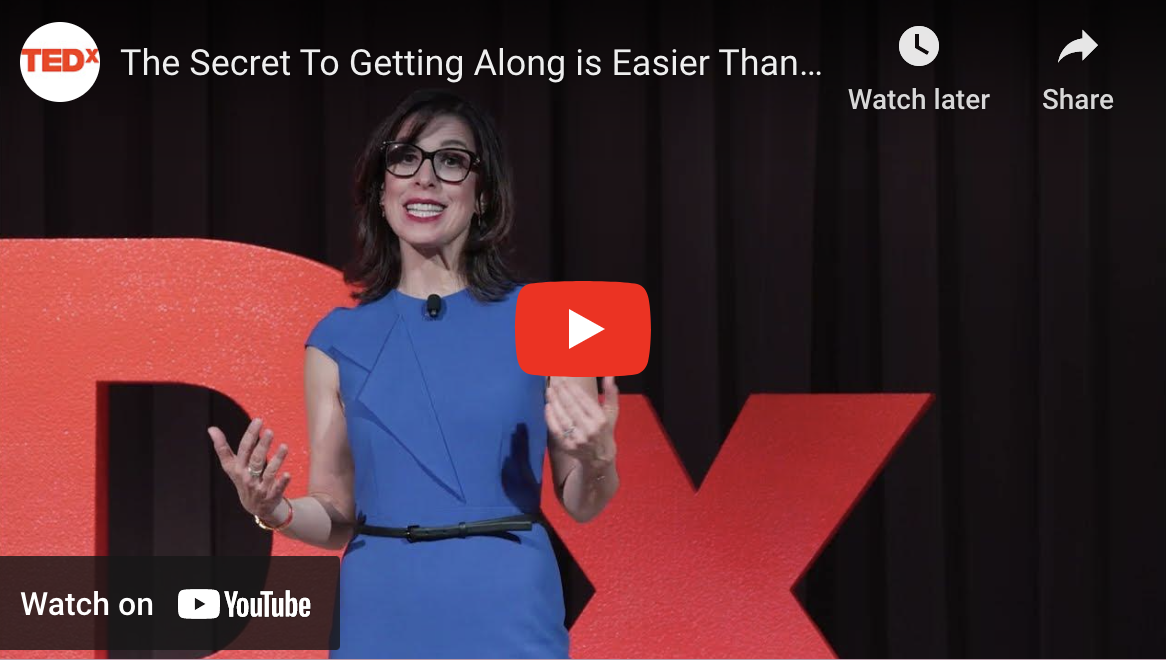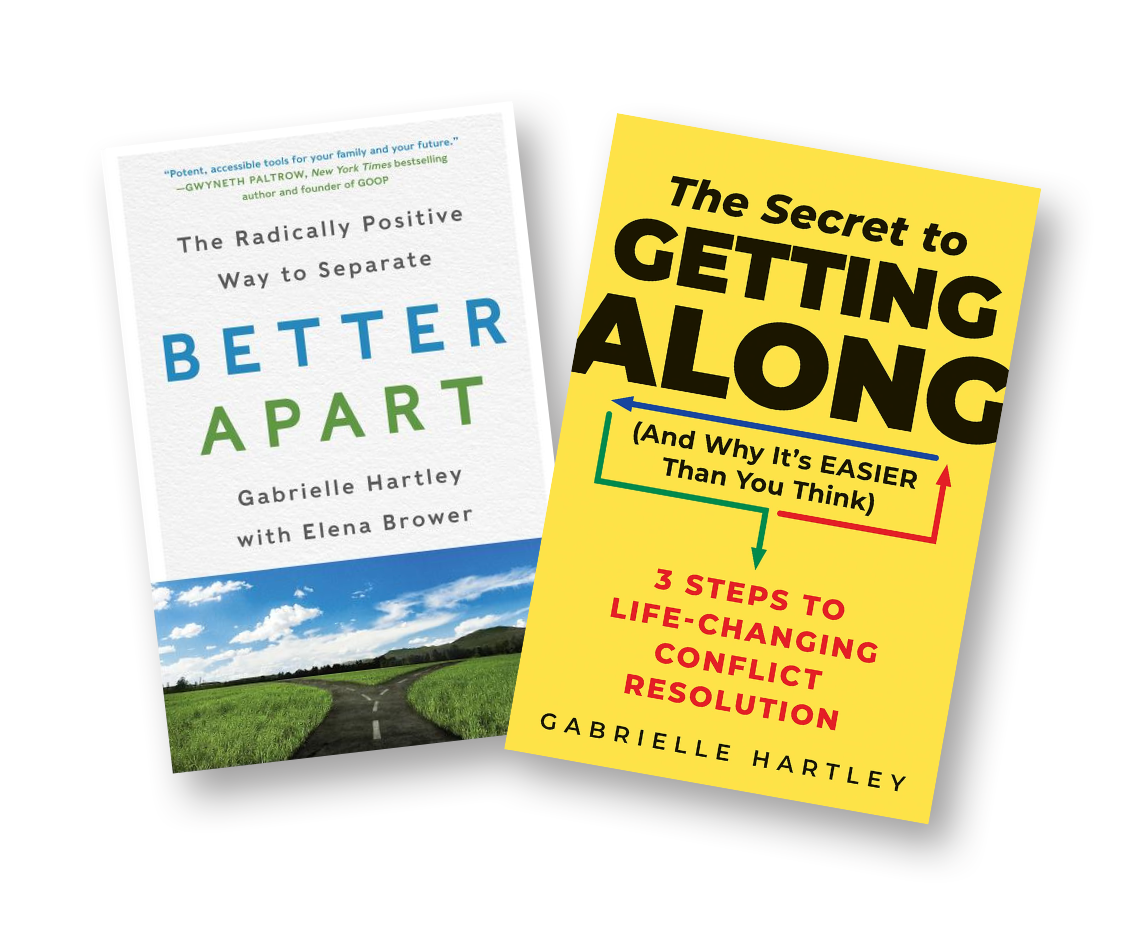“She isn’t his mom. She will never take my place as his mom.” It is a mantra I have repeated to myself in moments when my son gravitates towards his father’s girlfriend, or when I have felt like an outsider as he shares some funny story or adventure they had together.
So, trust me when I say that I understand how hard it can be to witness a family forming for your child that includes a new person and does not include you. I know very well that torn feeling in the pit of your stomach, that deep desire for this new person to be amazing but also sort of wanting them to be awful so that your kids don’t want to spend time with them.
Navigating a co-parenting relationship is tricky in the best of times; maintaining healthy co-parenting boundaries isn’t always the easiest thing to do.
Throw in new love interests and it can be tough to keep the focus where it belongs: on the kids. Believe me, I know. But, more importantly, as a parent who has been there and a co-parenting coach, I also know how rewarding it can be to accept — and even embrace — your co-parent’s new partner.
1 Expanding Your Co-Parenting Boundaries Can Open Up A Brave New World
We talk about using community to raise our children. We welcome grandparents, aunts and uncles, and teachers into their lives. But when it comes to our co-parent’s new partners, we want to hide our kids away. We fear they will be so fun that our children will love them more than us. At the same time, we worry they will resemble the evil stepparents in every old Disney movie. It’s a double-edged sword.
However, once you get past the idea that these people are going to usurp your place in your kids’ hearts, you will learn that they are just like the other adults we welcome into our kids’ lives.
These men and women have a lot to offer. They have strengths, talents and hobbies, and knowledge to share and can enrich our kids’ lives in ways that we don’t or can’t. And that is a good thing. Here’s an example from my own life: my ex’s partner is a birder. She wants to take my son out with binoculars to learn about birds I know nothing about. She also has beehives, and he collects honey with her. He even has his own beekeeper’s suit! He would never get those experiences with me, a person who can barely distinguish between a sparrow and a hawk and has no interest in mingling with hundreds of bees.
Similarly, a friend of mine hates winter. He can’t stand snow sports and thus, has never taken his kids on snow vacations. But his ex-wife’s boyfriend is an avid skier and spent this winter teaching their children to build snowmen and love skiing. Allowing these new people to share their wisdom and fun with our kids is a win-win for all. It can expand their world far beyond what we provide for them. Isn’t that what we want, for our kids to explore every possible interest they may have?
2 More Love Isn’t a Bad Thing
Everyone thrives on love and attention. Having another person who loves them and helps them feel good about themselves isn’t a bad thing for any child.
Your co-parent’s new partner can play a vital role in providing an expanded, healthy support system for your kids. These new adults may have personal insight into struggles that a child is experiencing, struggles perhaps they have been through themselves, and you have not.
They are an extra set of listening ears and an extra set of hugging arms when your kids need support and you can’t be there.
It is worth discussing your co-parenting boundaries with them when it comes to the difficult topics, because if their affection and guidance are accepted in your kids’ lives, they have the potential to be positive role models for your kids to look towards. Which is a good thing!

3 Growing the Team
Here’s the truth: you really have no say in whether your co-parent includes their new partner in his or her life with your children, no matter what co-parenting boundaries you set in the beginning. Unless this person is an actual threat to your kids’ wellbeing, the amount of connection they have with them isn’t up to you. Yet, how you behave towards this person may shape the relationship your kids have with him or her – and with their other parent. It may also invade the relationship you have with your co-parent.
Do you really want to create animosity and potential distancing between your kids and their other parent? Do you want to have frostier communication between you and your co-parent? Because these things are a real possibility if you behave negatively, manipulatively, or defensively when it comes to your co-parent’s partner.
Setting healthy co-parenting boundaries isn’t about shutting new partners out; it’s about establishing ways to help everyone involved interact in a more productive and positive way.
If you are positive and welcoming, however, you might just find that you have another great adult to love your kids. You may also have another great adult to be in your corner if there are disagreements with your co-parent over your kids. (At the very least, they might make your co-parent a happier, more agreeable person in general.) Finally, you may have another great adult to tag team with and help juggle carpools and scheduling when it comes to your children’s needs, activities, and milestone celebrations. It takes a village, right? Well, having this extra person on the team can be your village.
4 Know When to Stop
Okay, so now we know that in the best possible world, liking or even loving your co-parent’s new partner is a good thing. Of course, this all depends on the relationship that you have with your co-parent.
Be advised, there always are some situations where it is not healthy or prudent to connect with your ex’s new love.
If being around the new partner creates extreme feelings of jealousy and repeatedly lowers your self-worth or backslides your growth in any way, best to just be cordial and leave it at that. If you have left an abusive situation, there is no need to create extra connections between the two of you by befriending their new partner. If the new love interest themselves is high-conflict and/or manipulative, you don’t want to give them any fuel by befriending them.
Likewise, if you have a high-conflict ex with whom you must enforce strict co-parenting boundaries, it might not be wise to develop a close relationship with their new partner. (On the other hand, if you don’t have a stellar relationship with your co-parent, and this person is trustworthy, reasonable, and level-headed, they might wind up being a great ally and go-between for you and your ex.) It is all unique to each family, so tread carefully and pay attention to the wisest moves for your situation as you forge ahead.
The Bottom Line
Your co-parent’s new partner is NEVER going to take your place as your children’s mom or dad. That role belongs only to you, forever and always. My little mantra reminds me of this. But by setting co-parenting boundaries that promote positive interactions, they can provide an extra dose of nurturing love and life experience to help your kids succeed. And at the end of the day this is what matters – helping your kids grow and thrive with as much love and guidance as possible.

Tamar Burris is a co-parenting coach and author. She teaches her clients how to create and maintain healthy co-parenting boundaries and put their kids first as they “Co-parent Without Blame, Shame, or Games.” Find her book to help children and families adjust to new partners in mom/dad’s life, A New Special Friend, here or here.


FOLLOW GABRIELLE

DISCLAIMER: The commentary, advice, and opinions from Gabrielle Hartley are for informational purposes only and not for the purpose of providing legal advice or mental health services. You should contact an attorney and/or mental health professional in your state to obtain advice with respect to any particular issue or problem.
- One Edgewater Plaza Suite 304, Staten Island, NY 10305
- 266 Smith Street, Brooklyn, NY 11231
Northampton MA
PHONE:
New York: (917) 905-4553
Boston: (413) 450-0420



